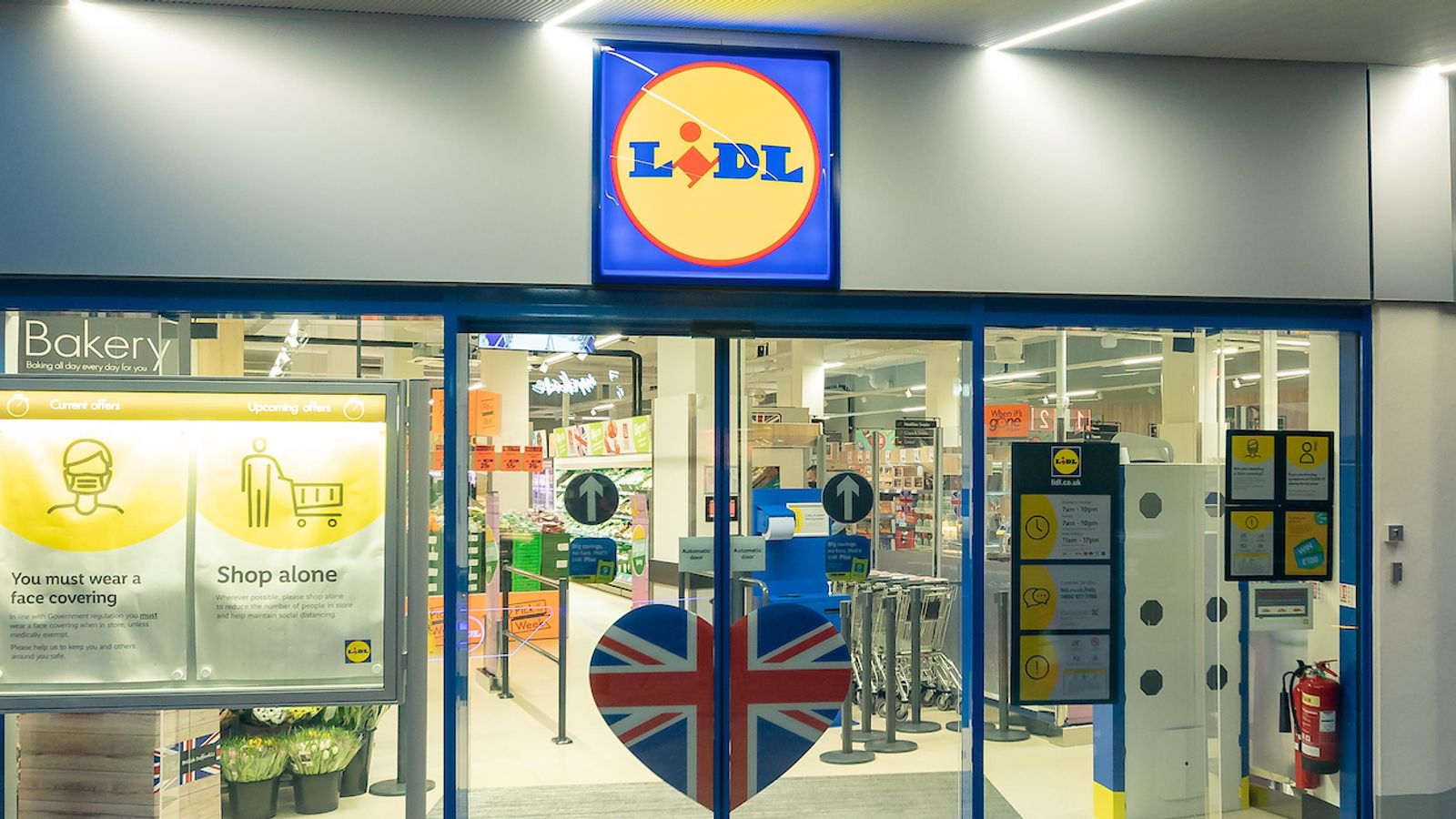Lidl claims cost of living boost as Christmas sales rise by a quarter

Lidl says a rise of almost 25% in UK sales during the key festive season reflected a surge in new shoppers switching from rivals because of the cost of living crisis.
The discount chain said it benefited from 1.3 million more customers in the week ahead of Christmas compared with the previous year.
Shoppers switched nearly £63m in spending from other supermarkets during December, it said, almost triple that of Christmas 2021.
It said the sales performance culminated in its busiest ever trading day on Friday 23 December.
The surge was likely driven by a number of factors, including the stampede for cheaper groceries witnessed over the past year as the cost of living crisis has intensified.
These include the impact of inflation on many products – and new store openings – flattering the data.
Lidl does not provide comparable same-store sales figures.
However, industry figures have consistently shown market share growth for Lidl and its greatest discount rival Aldi – with the latter leading the way.
Read more:
Worst yet to come with average household £2,100 worse off
New cash payment to help with energy bills will begin in spring
Advertisement
Please use Chrome browser for a more accessible video player
2:36
Could some shops be forced to close?
The latest Kantar Worldpanel report showed Lidl’s market share last month at 7.2% compared with 6.3% 12 months previously.
Aldi’s rose from 7.7% to 9.1%.
Market leader Tesco – along with its biggest rival Sainsbury’s – will update the City on their respective performances later this week.
Data would suggest that the major chains have also done well over the festive season due to more people staying in because of the squeeze on budgets from energy-led inflation.
Ryan McDonnell, chief executive of Lidl GB, said: “Every week of the year we are seeing more customers coming through our doors, switching spend to Lidl from the traditional supermarkets.”
He added: “Our strategy – great quality products at low prices – has remained the same since we first opened our doors over 28 years ago. That is only because it’s as relevant now as it ever has been.
“It is working because we are seeing big switching gains, with over £63m of spend moving to us in the four weeks to the 25th of December.
“We only see this momentum continuing in 2023.”